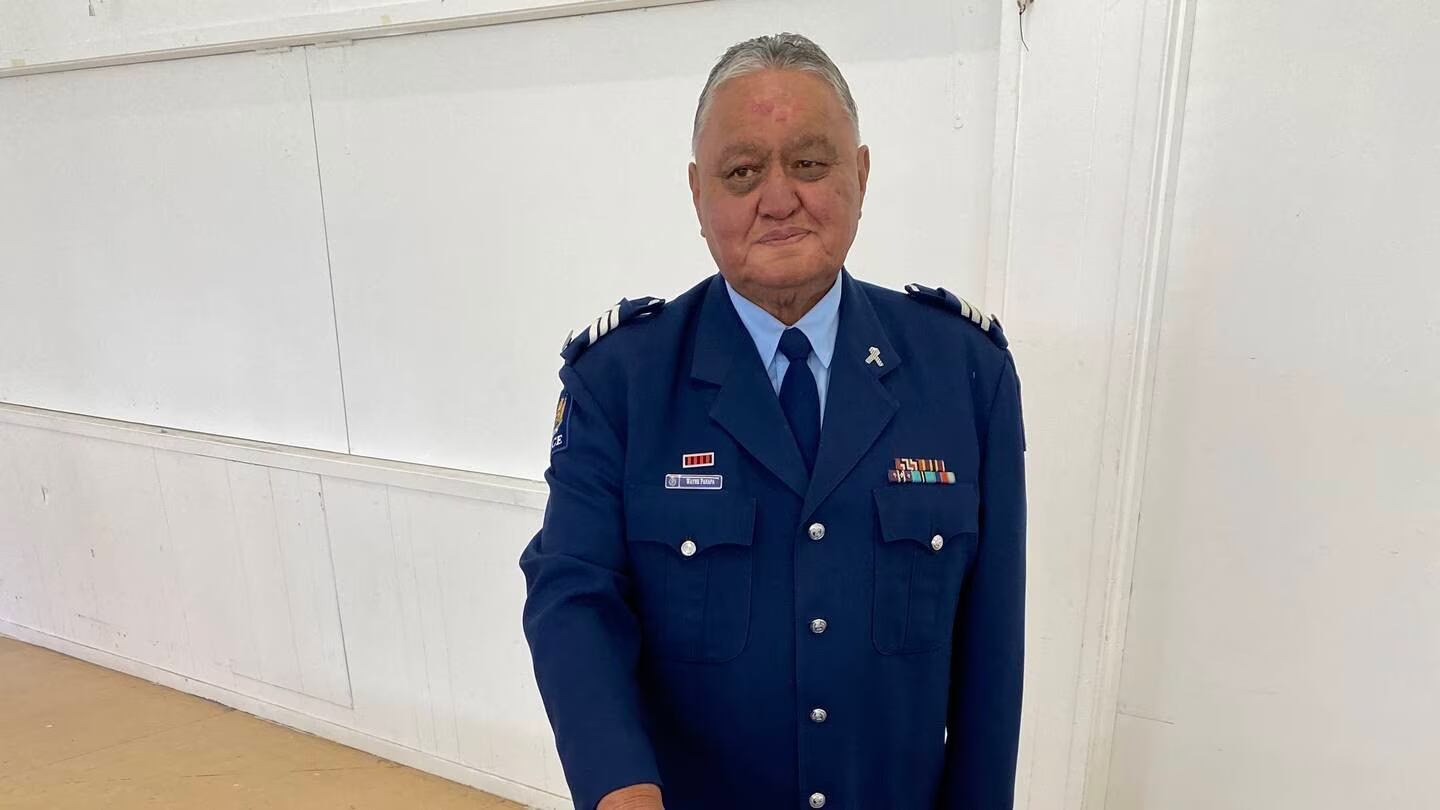“I think Māori first, and police officer second,” said Sergeant Wayne Panapa QSM.
Those are the powerful words of advice for any Māori police recruits from a man who has spent 50 years on the frontline of police work.
Today, at Kirikiriroa Marae in Hamilton, is a day where Panapa can reflect on a long and distinguished career in the New Zealand Police.
“I’m feeling pretty humble and honoured while thinking of all those Māori officers who served before me and all those I’ve served with and what I’ve learned from them when dealing with people,” Panapa said.
Deputy Police Commissioner, iwi & communities, Wallace Haumaha presented Sergeant Panapa with a service clasp to officially acknowledge his significant commitment and contribution to policing in Aotearoa.
“It is a commendable feat. Sergeant Panapa has been an instrumental part of the iwi & communities team that has taken the Kaupapa Māori Programme to greater and newer heights,” Haumaha said.

Lady Tureiti Moxon, managing director of Te Kōhao Health, and members of the sergeant’s police whānau paid tribute to such a prominent figure for police who trained at the Trentham base camp in 1973.
“I don’t leave being Māori at home like our old people did when they went to school and couldn’t speak Māori. I take it every day to work,” Panapa said.
Staying tūturu to his roots with an indomitable spirit are hallmarks of Panapa’s character and staying power.
Yet the youngest son in a family of seven of an Anglican Minister didn’t start out wanting to be a career cop.
Initially, he was a nurse at Tokanui Hospital then made the career switch only after travelling to 64 countries singing with a performance group backed by the New Zealand Brass Band.
He decided to change career when he saw two Ministry of Transport riders.
“I saw a couple of Māori boys riding motorbikes looking slick back in the day.”
Panapa applied to the Ministry of Transport becoming a frontline enforcement officer for 18 years before the MoT-Police merger 1992.
Panapa was one the first iwi liaison officers at the time and had to be a sworn member of the police. Of Ngāti Whātua and Ngāti Ngawaero, it was a proud moment and mandated by his people.
“It wasn’t a police decision. You were appointed by your iwi in your particular area. If you didn’t have the backing of your own people in your own rohe, you wouldn’t have gone so well.”
By 2001 he was awarded the Queen’s Service Medal for contribution to policing and work with Māori wardens that has strengthened the relationship between iwi and police.
Since instigation, he’s been a staunch advocate for Te Pae Oranga Iwi Community Panels that avoids the “conveyer belt of court” for low-level offending. Police work in partnership with iwi in the alternative pathway offering restoration through a te ao Māori lens.
“It’s for all people. We have Māori, Pākehā, Indian, Asian, it’s for everyone as it gives them a voice that they don’t have when they go to court.”
The innovation of the iwi kaumātua panel provides the magic for people to move on he believes.
“Where do you see the participant (offender), the victim and the police officer all in the same room shaking hands and having a cup of tea together at the end of it provided they achieve what they are supposed to achieve – if they don’t, it’s referred back to court.”
The ‘Golden Jubilee’ acknowledging Panapa’s mana is testament to his strong presence and cultural advocacy that has served thousands across 12 police districts through the decades.
Good leadership within the police and unwavering support of Māori elders, kaumātua and kuia and those within his hapū have been the motivating factors for his enduring service and fidelity to the force.
Asked what he would teach his mokopuna if they were considering a career in the police, the answer is centred on mātauranga and authenticity.

He mentions the whakataukī gifted to the police by the late Ngati Porou leader Apirana Mahuika.
“E tū ki te kei o te waka, kia pakia koe e ngā ngaru o te wā.”
(Stand at the stern of the canoe and feel the spray of the future biting at your face).
“If they’re thinking about applying, get educated and don’t leave yourself out. Have a bit of patience and a sense of humour. Carry your good learnings from your parents and your ancestors to the job and don’t take a back seat.”
As he navigates his seventh decade with the insightful perspective and seasoned wisdom of a kaumātua, Panapa recalls what he was taught once by the judiciary.
“There was a District Court judge that always told us that you ‘damn the offence, not the offender’.”

